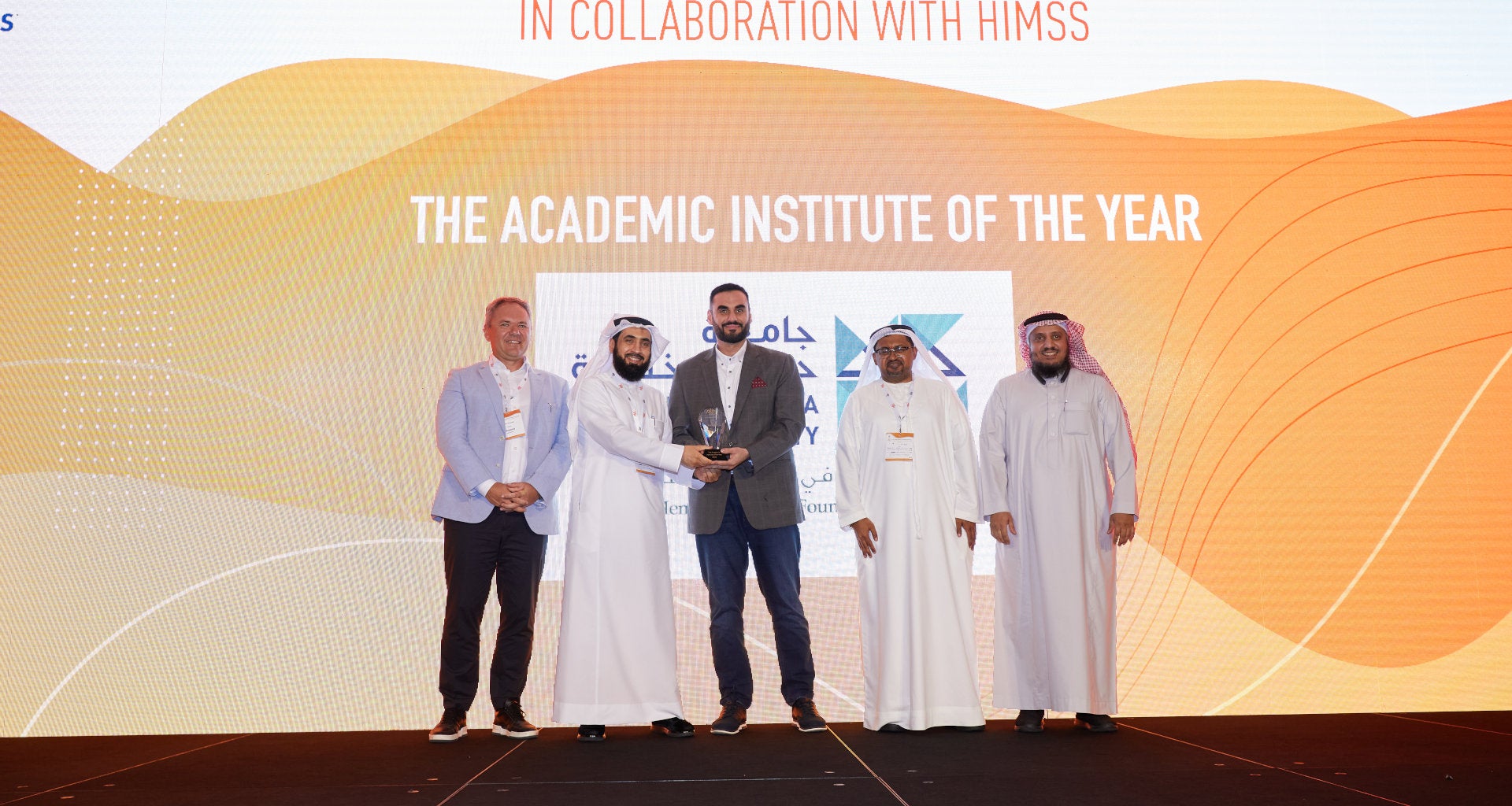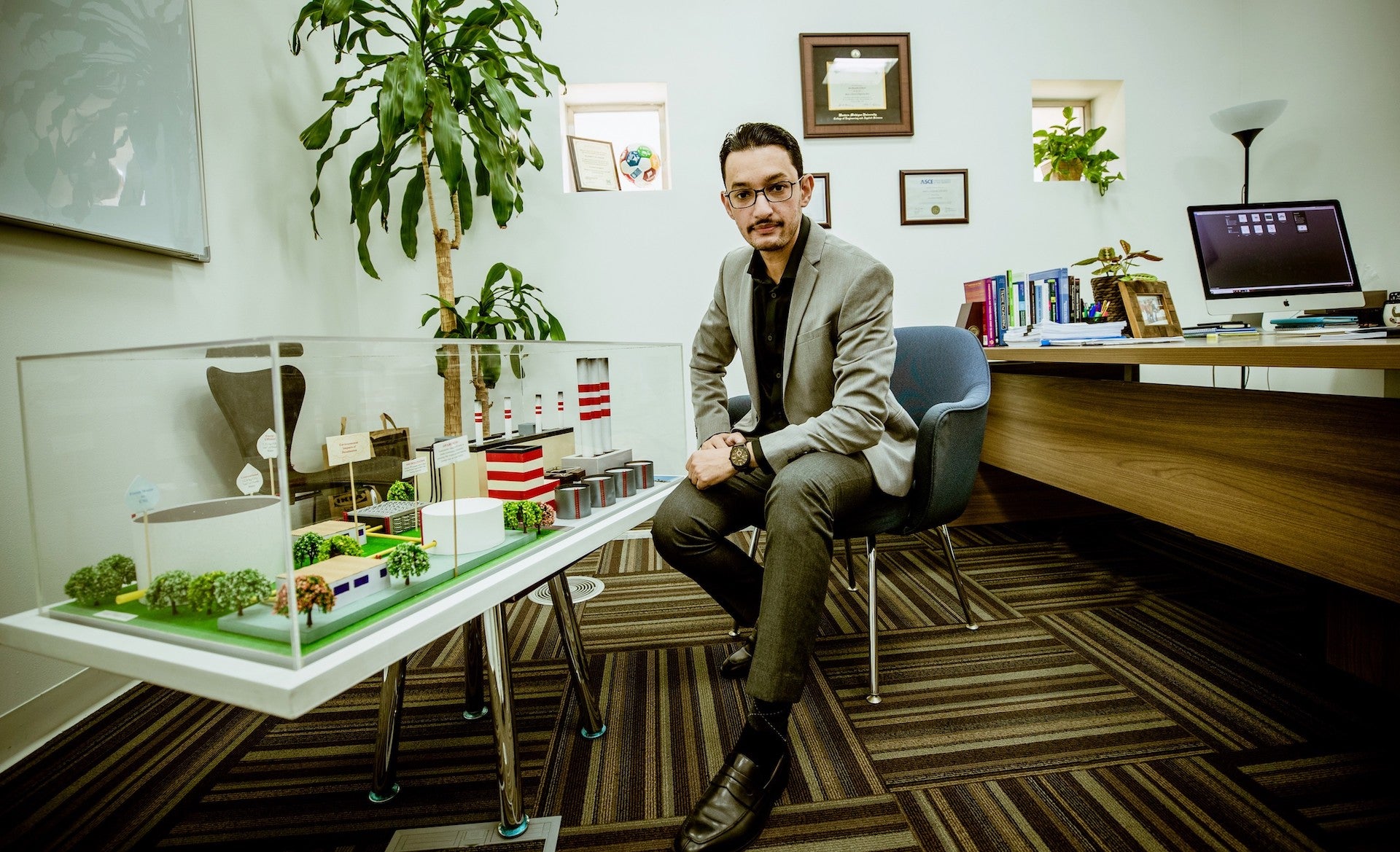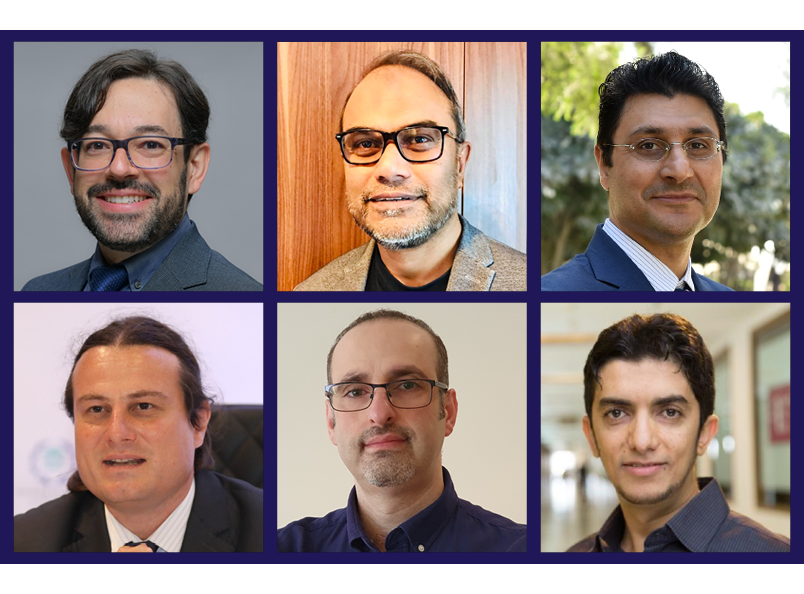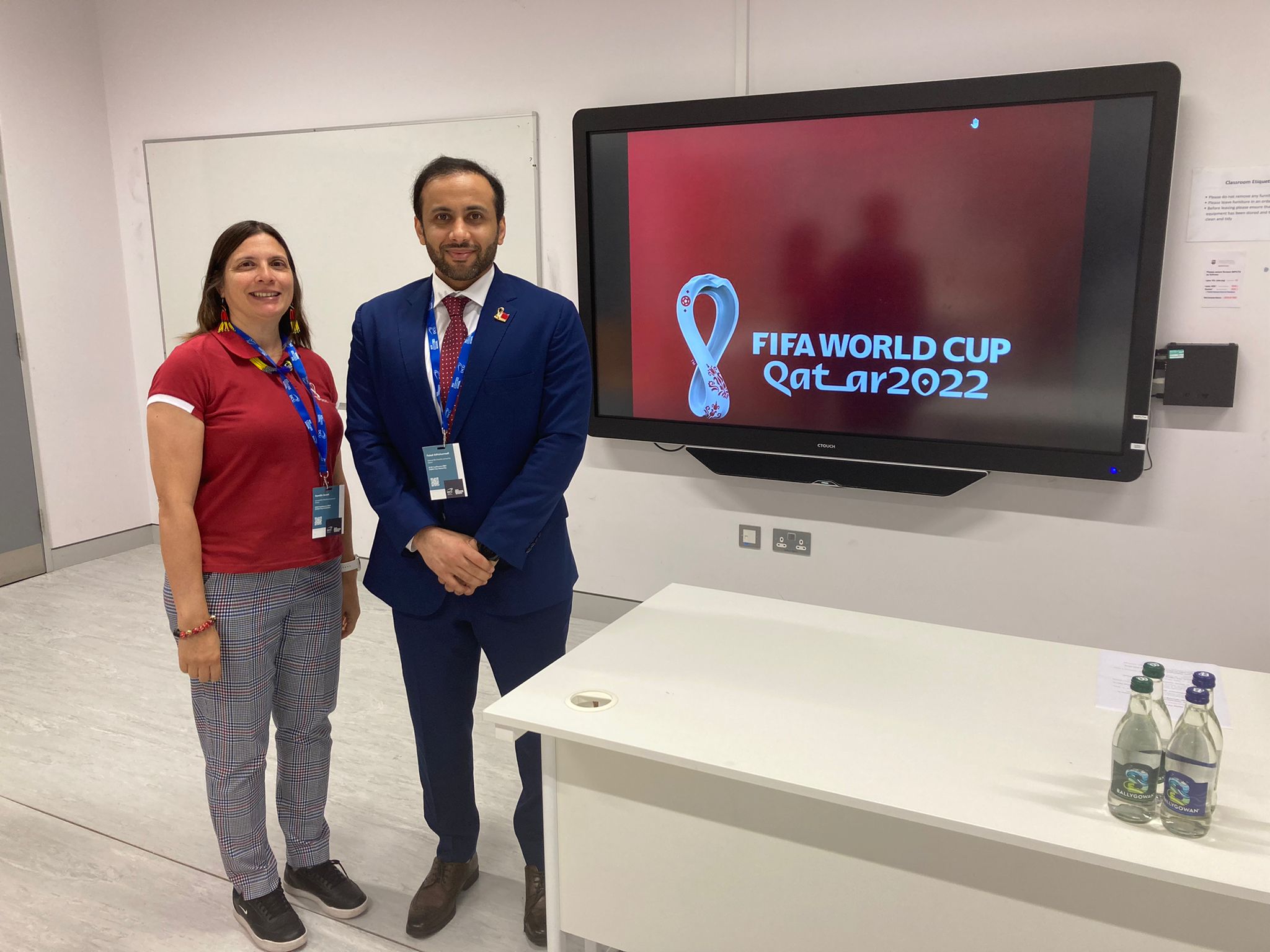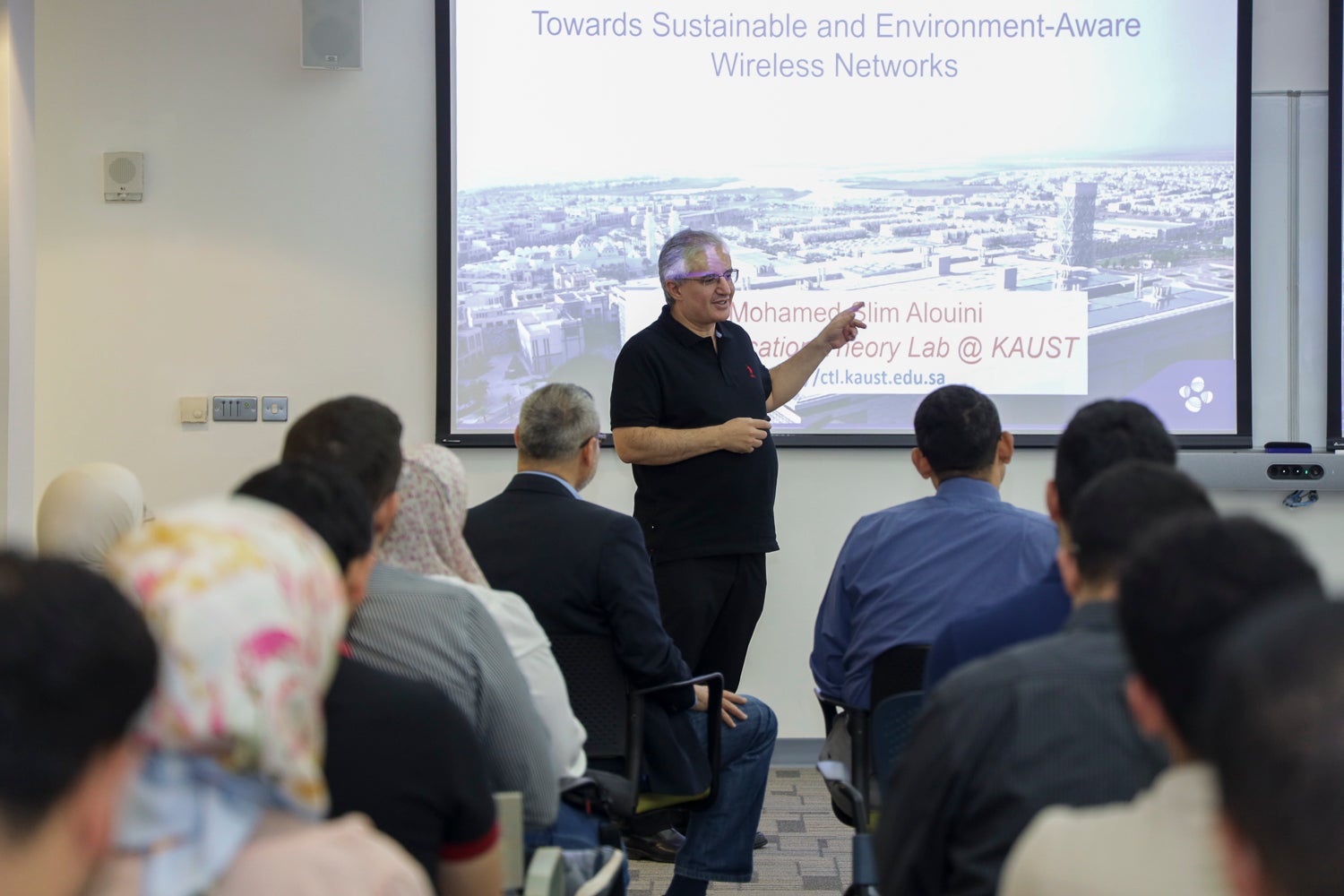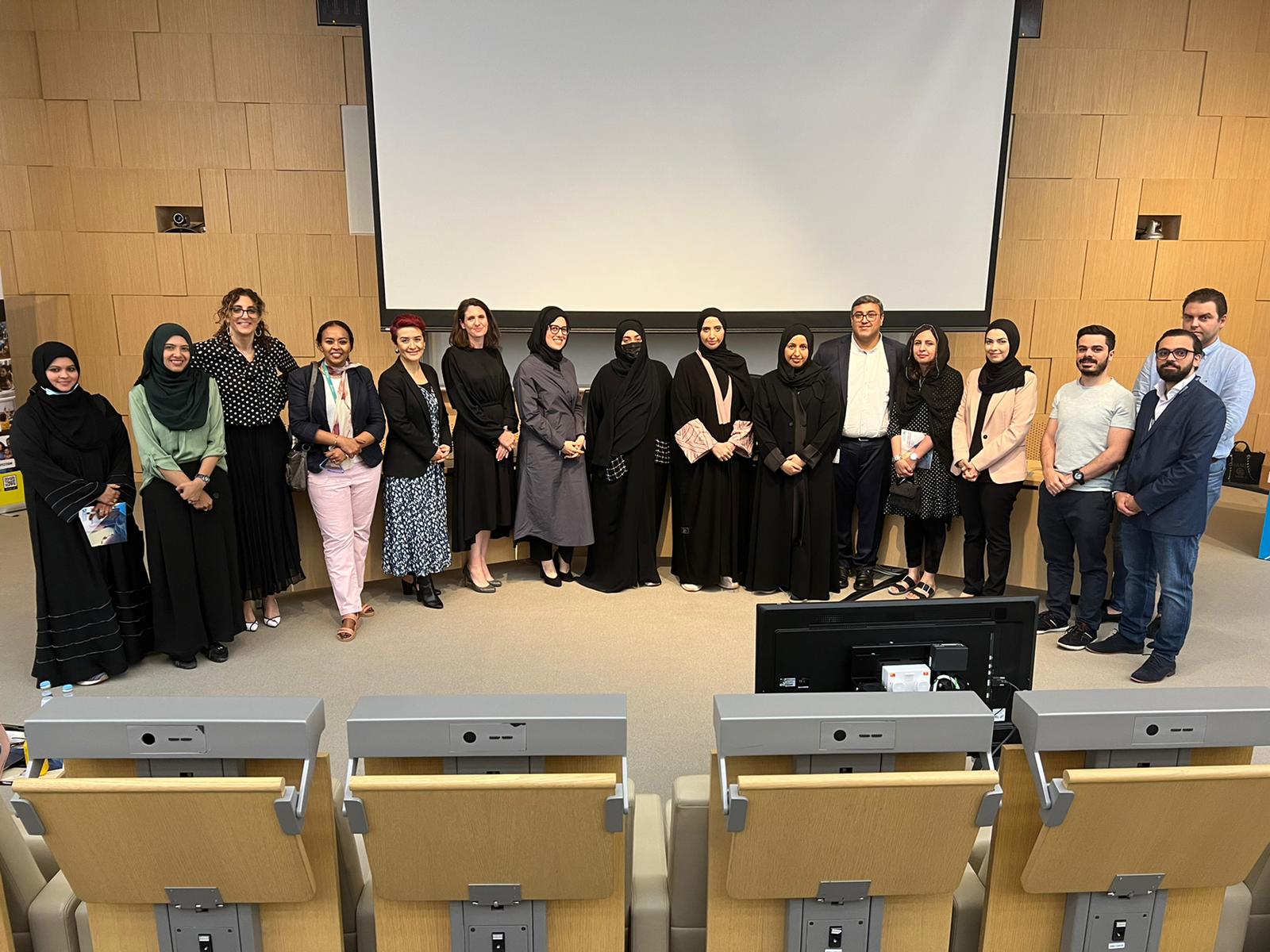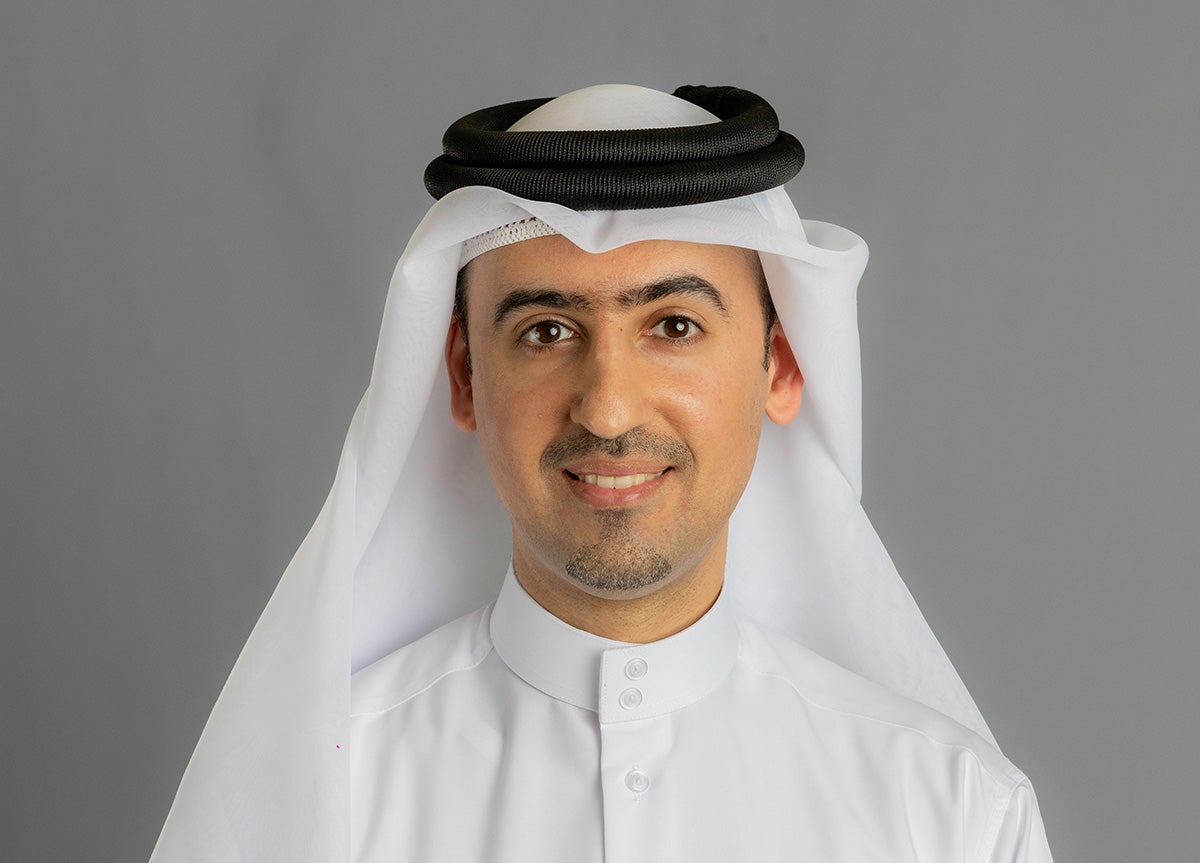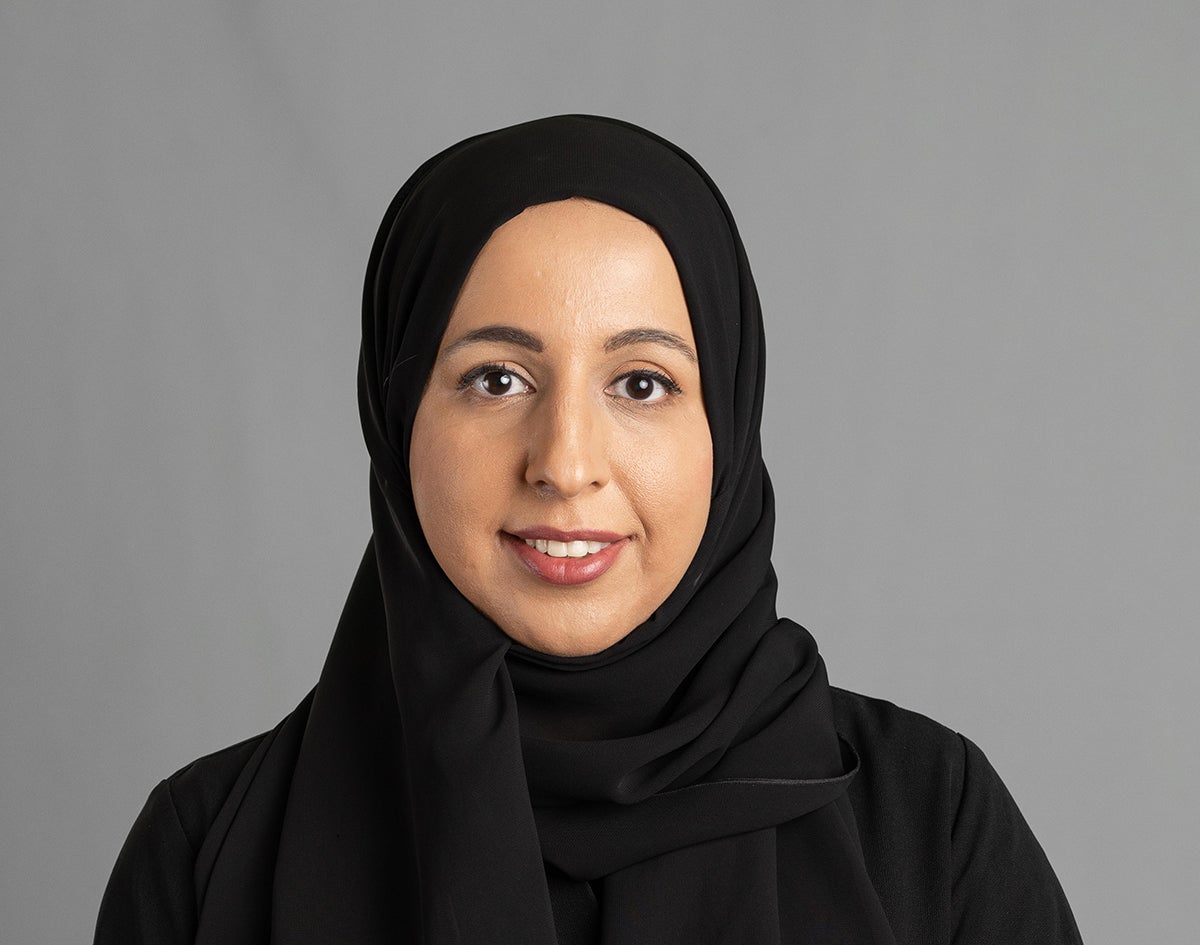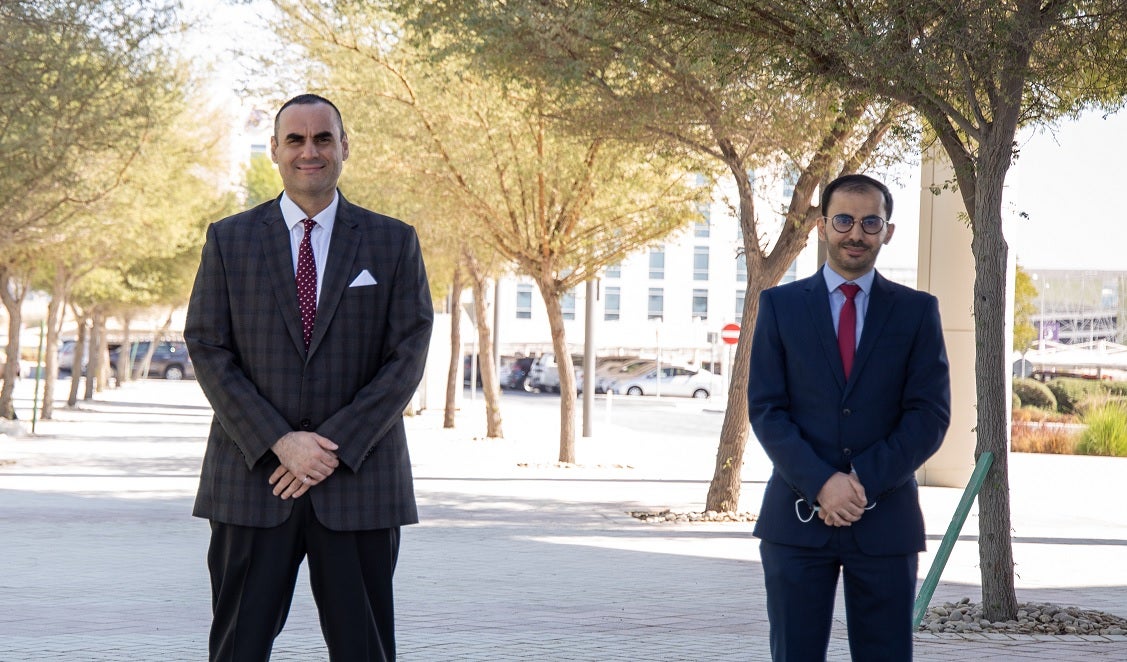
Experts Focus on Carbon Management at EAGE Workshop
HBKU-developed QASR simulator among tech innovations with environmental benefits

Qatari and international geoscientists and engineers gathered in Doha for the European Association of Geoscientists and Engineers (EAGE) Well Injectivity/Productivity and Reservoir Management in Carbonates (WIPIC) Workshop from March 21-23. The fourth edition had a new and broader multidisciplinary focus on carbonate reservoirs, which hold more than half of the world’s oil and natural gas reserves, many located in the Middle East, including Qatar.
Among the presenters and attendees were industry specialists and expert representatives from multinational oil companies, service providers, universities, and research institutes around the world, including Qatar, France, Denmark, Italy, Norway, and the United Kingdom. Chaired by Dr. Ahmad Sami Abushaikha, Associate Professor at HBKU’s College of Science and Engineering (CSE), Division of Sustainable Development, and Dr. Herbert Lescanne of TotalEnergies, the three-day event focused on a comprehensive range of technical topics that reflected a multidisciplinary approach to optimizing reservoir management and productivity.
The event began with a full day workshop on March 21, “Reservoir Simulation Fundamentals”, presented by Dr. Leonardo Patacchini, Regional Director, Stone Ridge Technology. The technical program included keynote addresses by speakers Eng. Mohammed Ali Al-Buainain, Petroleum Engineering Manager, QatarGas, Eng. Gerald Latchimy-Parassouramin, Energy Transition and Carbon Footprint Reduction Manager, TotalEnergies Qatar, and Eng. Jackie Kechichian, Development Manager, Shell Qatar. A key theme was the need to reduce the industry’s environmental footprint through carbon management, net-zero emissions, and energy transition.
Research students from HBKU, Imperial College London, Qatar University, China University of Petroleum, and other institutions made leading contributions. Three CSE graduate students presented their innovative research solutions at a panel discussion “Managing CO2”.
The workshop was also an opportunity for CSE to share a major milestone. A presentation by Dr. Abushaikha titled, “Joining the Billion Cell Club: Modeling of a Giant Oil and Gas Fields Using Advanced Simulation Methods”, discussed the state-of-the-art reservoir simulation software, QASR (Qatari Advanced Simulations for Reservoirs) developed by CSE researchers. QASR is also capable of modeling carbon dioxide (Co2) sequestration projects to store millions of tons of greenhouse gasses in depleted reservoirs, and assessing the feasibility of emerging technologies such as blue hydrogen.
After the event, Dr. Abushaikha said: “The EAGE workshop in its fourth edition was an excellent forum to learn from experts and build connections within the industry. There was a clear consensus on the need to focus on the energy transition and decarbonization to support environmental sustainability for the industry. It was a pleasure to discuss innovations that will contribute to this goal, and one of those is CSE’s QASR simulator, capable of boosting greenhouse gas storage. We had the opportunity to engage with an international expert audience on how CSE’s research achievement can benefit the entire industry. Finally, we thank the members of our Technical Committee for their support in developing an engaging program, and we look forward to the next edition.”
Related News

College of Science and Engineering Signs MoU with Hassad Food to Advance Science and Technology in Food Production
HBKU’s College of Science and Engineering Team Wins First Place in Middle East and Africa at ITU AI4Dev Challenge
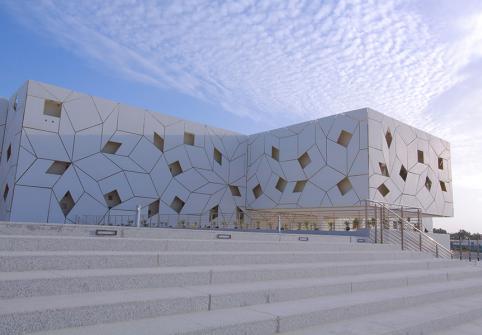
College of Science and Engineering Awarded Grant to Create a National Risk Management Plan for Qatar
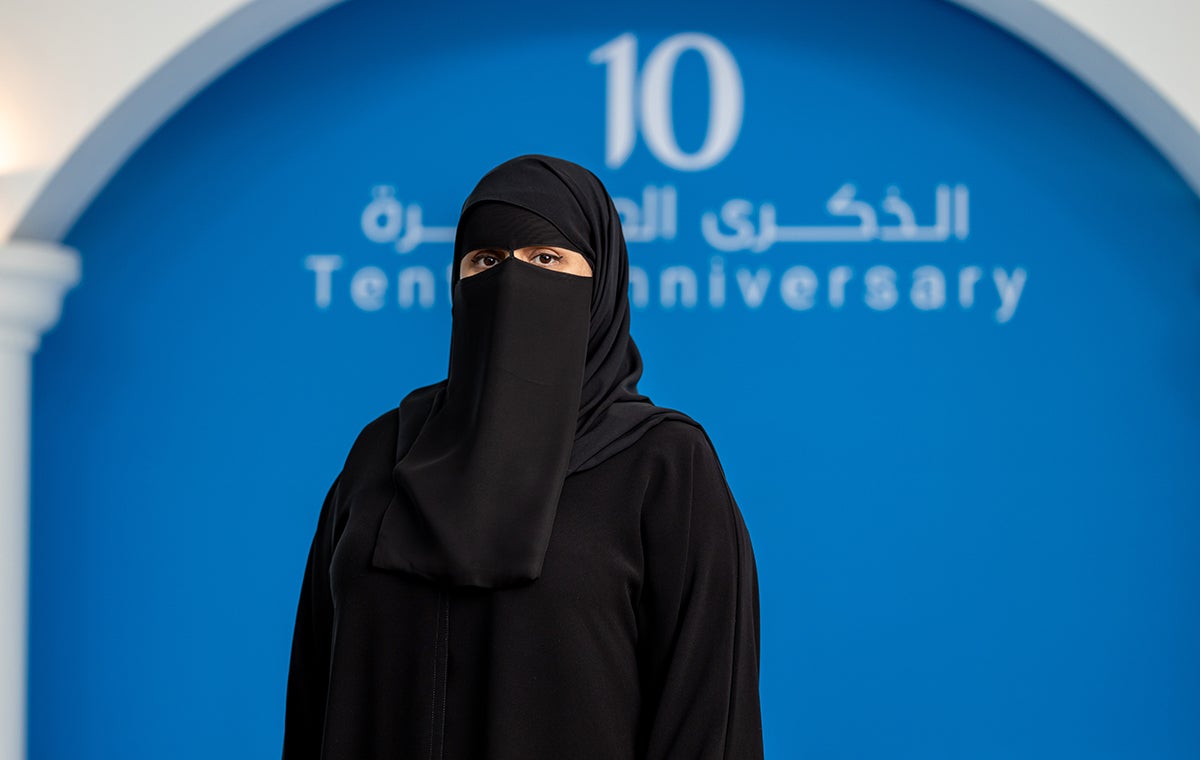
Interview with Muneera Al-Qahtani, Graduate, College of Science and Engineering, First Batch of HBKU Graduates
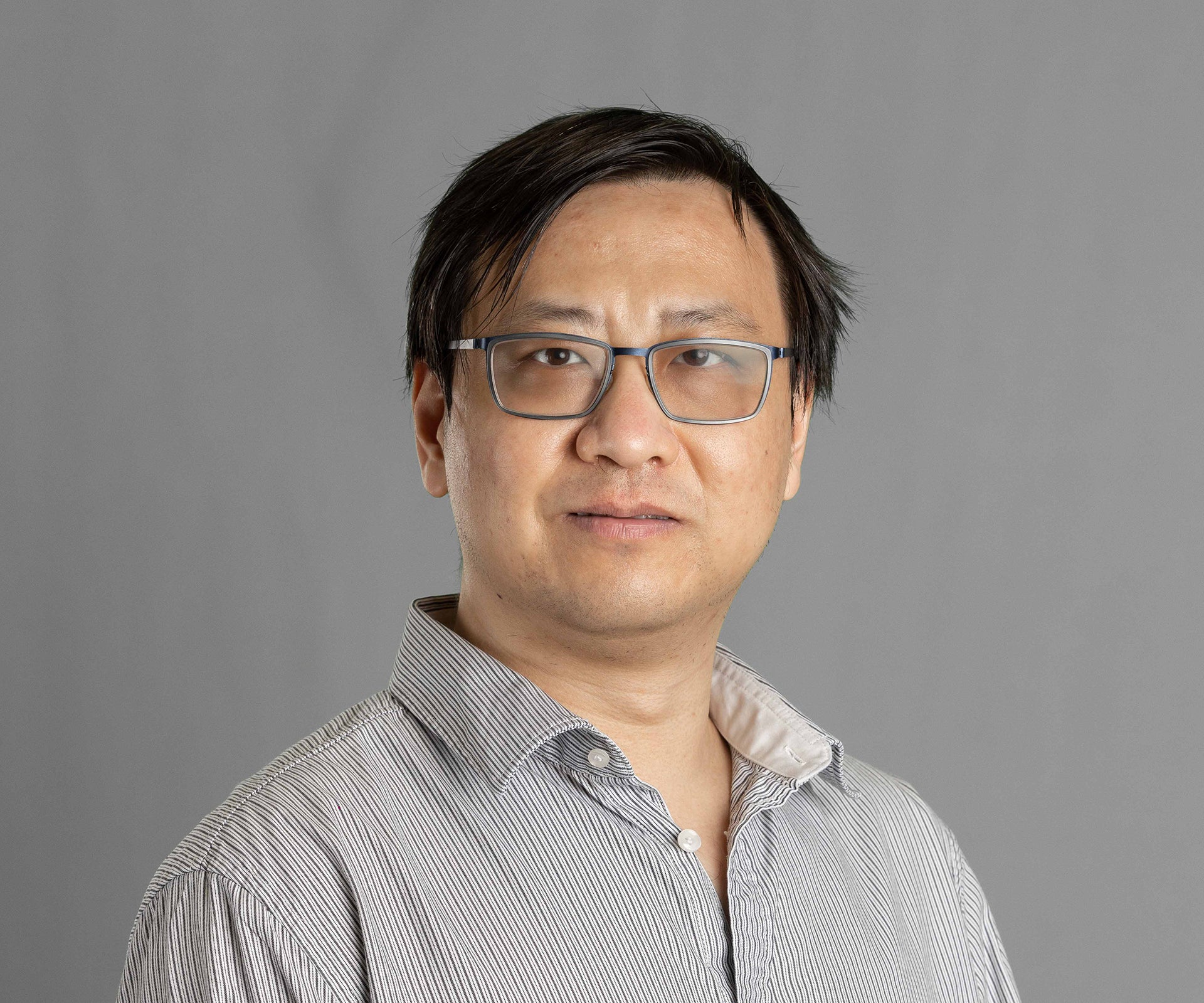
CSE Wins Best Research Paper Award at 47th International Conference on Very Large Databases
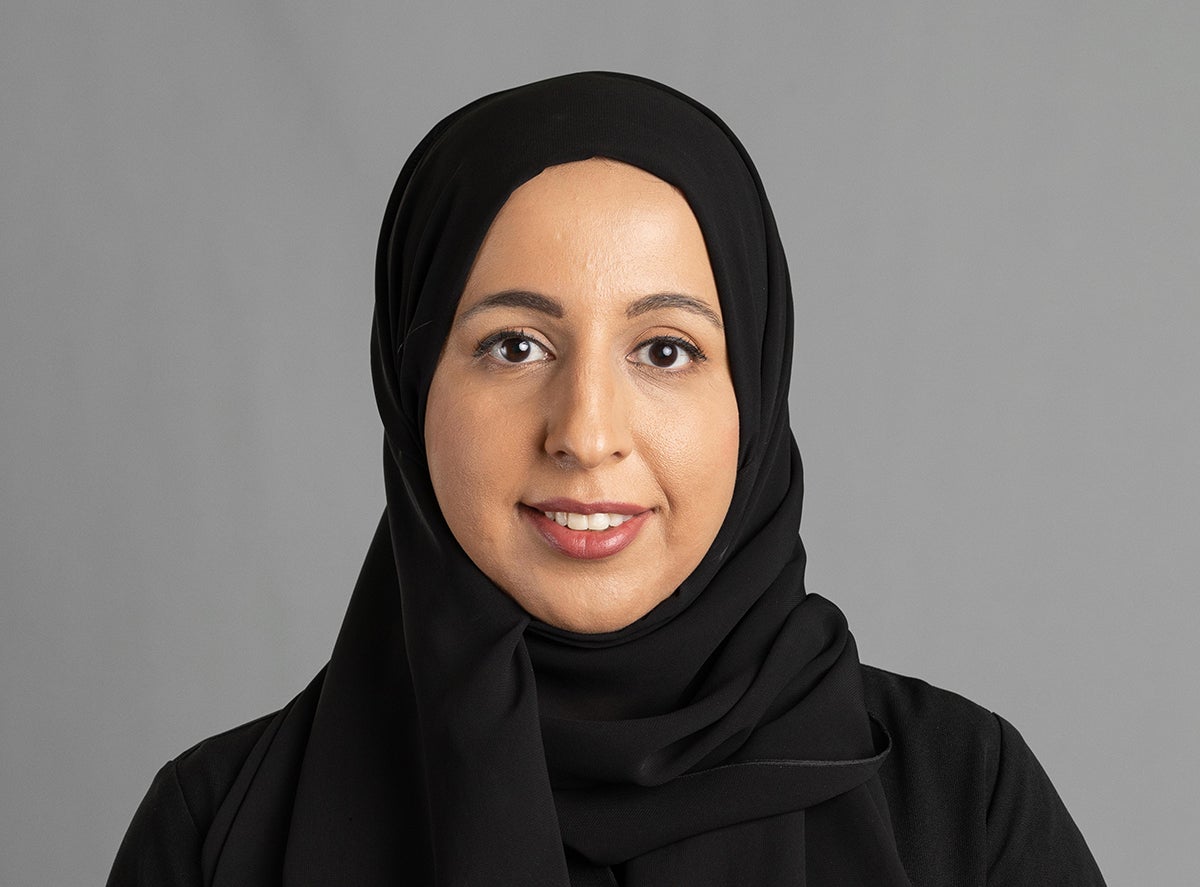
College of Science and Engineering Highlights Research on Digital Trends at International Conference on Persuasive Technologies

College of Science and Engineering Signs MoU with Hassad Food to Advance Science and Technology in Food Production

HBKU’s College of Science and Engineering Team Wins First Place in Middle East and Africa at ITU AI4Dev Challenge

College of Science and Engineering Awarded Grant to Create a National Risk Management Plan for Qatar

Interview with Muneera Al-Qahtani, Graduate, College of Science and Engineering, First Batch of HBKU Graduates

CSE Wins Best Research Paper Award at 47th International Conference on Very Large Databases

College of Science and Engineering Highlights Research on Digital Trends at International Conference on Persuasive Technologies

College of Science and Engineering Signs MoU with Hassad Food to Advance Science and Technology in Food Production

HBKU’s College of Science and Engineering Team Wins First Place in Middle East and Africa at ITU AI4Dev Challenge

College of Science and Engineering Awarded Grant to Create a National Risk Management Plan for Qatar

Interview with Muneera Al-Qahtani, Graduate, College of Science and Engineering, First Batch of HBKU Graduates

CSE Wins Best Research Paper Award at 47th International Conference on Very Large Databases

College of Science and Engineering Highlights Research on Digital Trends at International Conference on Persuasive Technologies

College of Science and Engineering Signs MoU with Hassad Food to Advance Science and Technology in Food Production

HBKU’s College of Science and Engineering Team Wins First Place in Middle East and Africa at ITU AI4Dev Challenge

College of Science and Engineering Awarded Grant to Create a National Risk Management Plan for Qatar

Interview with Muneera Al-Qahtani, Graduate, College of Science and Engineering, First Batch of HBKU Graduates

CSE Wins Best Research Paper Award at 47th International Conference on Very Large Databases

College of Science and Engineering Highlights Research on Digital Trends at International Conference on Persuasive Technologies

College of Science and Engineering Signs MoU with Hassad Food to Advance Science and Technology in Food Production

HBKU’s College of Science and Engineering Team Wins First Place in Middle East and Africa at ITU AI4Dev Challenge

College of Science and Engineering Awarded Grant to Create a National Risk Management Plan for Qatar

Interview with Muneera Al-Qahtani, Graduate, College of Science and Engineering, First Batch of HBKU Graduates

CSE Wins Best Research Paper Award at 47th International Conference on Very Large Databases

College of Science and Engineering Highlights Research on Digital Trends at International Conference on Persuasive Technologies

College of Science and Engineering Signs MoU with Hassad Food to Advance Science and Technology in Food Production

HBKU’s College of Science and Engineering Team Wins First Place in Middle East and Africa at ITU AI4Dev Challenge

College of Science and Engineering Awarded Grant to Create a National Risk Management Plan for Qatar

Interview with Muneera Al-Qahtani, Graduate, College of Science and Engineering, First Batch of HBKU Graduates

CSE Wins Best Research Paper Award at 47th International Conference on Very Large Databases

College of Science and Engineering Highlights Research on Digital Trends at International Conference on Persuasive Technologies

College of Science and Engineering Signs MoU with Hassad Food to Advance Science and Technology in Food Production

HBKU’s College of Science and Engineering Team Wins First Place in Middle East and Africa at ITU AI4Dev Challenge

College of Science and Engineering Awarded Grant to Create a National Risk Management Plan for Qatar

Interview with Muneera Al-Qahtani, Graduate, College of Science and Engineering, First Batch of HBKU Graduates

CSE Wins Best Research Paper Award at 47th International Conference on Very Large Databases

College of Science and Engineering Highlights Research on Digital Trends at International Conference on Persuasive Technologies

College of Science and Engineering Signs MoU with Hassad Food to Advance Science and Technology in Food Production

HBKU’s College of Science and Engineering Team Wins First Place in Middle East and Africa at ITU AI4Dev Challenge

College of Science and Engineering Awarded Grant to Create a National Risk Management Plan for Qatar

Interview with Muneera Al-Qahtani, Graduate, College of Science and Engineering, First Batch of HBKU Graduates

CSE Wins Best Research Paper Award at 47th International Conference on Very Large Databases

College of Science and Engineering Highlights Research on Digital Trends at International Conference on Persuasive Technologies

College of Science and Engineering Signs MoU with Hassad Food to Advance Science and Technology in Food Production

HBKU’s College of Science and Engineering Team Wins First Place in Middle East and Africa at ITU AI4Dev Challenge

College of Science and Engineering Awarded Grant to Create a National Risk Management Plan for Qatar

Interview with Muneera Al-Qahtani, Graduate, College of Science and Engineering, First Batch of HBKU Graduates

CSE Wins Best Research Paper Award at 47th International Conference on Very Large Databases

College of Science and Engineering Highlights Research on Digital Trends at International Conference on Persuasive Technologies

College of Science and Engineering Signs MoU with Hassad Food to Advance Science and Technology in Food Production

HBKU’s College of Science and Engineering Team Wins First Place in Middle East and Africa at ITU AI4Dev Challenge

College of Science and Engineering Awarded Grant to Create a National Risk Management Plan for Qatar

Interview with Muneera Al-Qahtani, Graduate, College of Science and Engineering, First Batch of HBKU Graduates

CSE Wins Best Research Paper Award at 47th International Conference on Very Large Databases

College of Science and Engineering Highlights Research on Digital Trends at International Conference on Persuasive Technologies

College of Science and Engineering Signs MoU with Hassad Food to Advance Science and Technology in Food Production

HBKU’s College of Science and Engineering Team Wins First Place in Middle East and Africa at ITU AI4Dev Challenge

College of Science and Engineering Awarded Grant to Create a National Risk Management Plan for Qatar

Interview with Muneera Al-Qahtani, Graduate, College of Science and Engineering, First Batch of HBKU Graduates

CSE Wins Best Research Paper Award at 47th International Conference on Very Large Databases

College of Science and Engineering Highlights Research on Digital Trends at International Conference on Persuasive Technologies

College of Science and Engineering Signs MoU with Hassad Food to Advance Science and Technology in Food Production

HBKU’s College of Science and Engineering Team Wins First Place in Middle East and Africa at ITU AI4Dev Challenge

College of Science and Engineering Awarded Grant to Create a National Risk Management Plan for Qatar

Interview with Muneera Al-Qahtani, Graduate, College of Science and Engineering, First Batch of HBKU Graduates

CSE Wins Best Research Paper Award at 47th International Conference on Very Large Databases

College of Science and Engineering Highlights Research on Digital Trends at International Conference on Persuasive Technologies

College of Science and Engineering Signs MoU with Hassad Food to Advance Science and Technology in Food Production

HBKU’s College of Science and Engineering Team Wins First Place in Middle East and Africa at ITU AI4Dev Challenge

College of Science and Engineering Awarded Grant to Create a National Risk Management Plan for Qatar

Interview with Muneera Al-Qahtani, Graduate, College of Science and Engineering, First Batch of HBKU Graduates

CSE Wins Best Research Paper Award at 47th International Conference on Very Large Databases

College of Science and Engineering Highlights Research on Digital Trends at International Conference on Persuasive Technologies

College of Science and Engineering Signs MoU with Hassad Food to Advance Science and Technology in Food Production

HBKU’s College of Science and Engineering Team Wins First Place in Middle East and Africa at ITU AI4Dev Challenge

College of Science and Engineering Awarded Grant to Create a National Risk Management Plan for Qatar

Interview with Muneera Al-Qahtani, Graduate, College of Science and Engineering, First Batch of HBKU Graduates

CSE Wins Best Research Paper Award at 47th International Conference on Very Large Databases

College of Science and Engineering Highlights Research on Digital Trends at International Conference on Persuasive Technologies

College of Science and Engineering Signs MoU with Hassad Food to Advance Science and Technology in Food Production

HBKU’s College of Science and Engineering Team Wins First Place in Middle East and Africa at ITU AI4Dev Challenge

College of Science and Engineering Awarded Grant to Create a National Risk Management Plan for Qatar

Interview with Muneera Al-Qahtani, Graduate, College of Science and Engineering, First Batch of HBKU Graduates

CSE Wins Best Research Paper Award at 47th International Conference on Very Large Databases

College of Science and Engineering Highlights Research on Digital Trends at International Conference on Persuasive Technologies

College of Science and Engineering Signs MoU with Hassad Food to Advance Science and Technology in Food Production

HBKU’s College of Science and Engineering Team Wins First Place in Middle East and Africa at ITU AI4Dev Challenge

College of Science and Engineering Awarded Grant to Create a National Risk Management Plan for Qatar

Interview with Muneera Al-Qahtani, Graduate, College of Science and Engineering, First Batch of HBKU Graduates

CSE Wins Best Research Paper Award at 47th International Conference on Very Large Databases

College of Science and Engineering Highlights Research on Digital Trends at International Conference on Persuasive Technologies

College of Science and Engineering Signs MoU with Hassad Food to Advance Science and Technology in Food Production

HBKU’s College of Science and Engineering Team Wins First Place in Middle East and Africa at ITU AI4Dev Challenge

College of Science and Engineering Awarded Grant to Create a National Risk Management Plan for Qatar

Interview with Muneera Al-Qahtani, Graduate, College of Science and Engineering, First Batch of HBKU Graduates

CSE Wins Best Research Paper Award at 47th International Conference on Very Large Databases

College of Science and Engineering Highlights Research on Digital Trends at International Conference on Persuasive Technologies

College of Science and Engineering Signs MoU with Hassad Food to Advance Science and Technology in Food Production

HBKU’s College of Science and Engineering Team Wins First Place in Middle East and Africa at ITU AI4Dev Challenge

College of Science and Engineering Awarded Grant to Create a National Risk Management Plan for Qatar

Interview with Muneera Al-Qahtani, Graduate, College of Science and Engineering, First Batch of HBKU Graduates

CSE Wins Best Research Paper Award at 47th International Conference on Very Large Databases

College of Science and Engineering Highlights Research on Digital Trends at International Conference on Persuasive Technologies

College of Science and Engineering Signs MoU with Hassad Food to Advance Science and Technology in Food Production

HBKU’s College of Science and Engineering Team Wins First Place in Middle East and Africa at ITU AI4Dev Challenge

College of Science and Engineering Awarded Grant to Create a National Risk Management Plan for Qatar

Interview with Muneera Al-Qahtani, Graduate, College of Science and Engineering, First Batch of HBKU Graduates

CSE Wins Best Research Paper Award at 47th International Conference on Very Large Databases

College of Science and Engineering Highlights Research on Digital Trends at International Conference on Persuasive Technologies

College of Science and Engineering Signs MoU with Hassad Food to Advance Science and Technology in Food Production

HBKU’s College of Science and Engineering Team Wins First Place in Middle East and Africa at ITU AI4Dev Challenge

College of Science and Engineering Awarded Grant to Create a National Risk Management Plan for Qatar

Interview with Muneera Al-Qahtani, Graduate, College of Science and Engineering, First Batch of HBKU Graduates

CSE Wins Best Research Paper Award at 47th International Conference on Very Large Databases

College of Science and Engineering Highlights Research on Digital Trends at International Conference on Persuasive Technologies

College of Science and Engineering Signs MoU with Hassad Food to Advance Science and Technology in Food Production

HBKU’s College of Science and Engineering Team Wins First Place in Middle East and Africa at ITU AI4Dev Challenge

College of Science and Engineering Awarded Grant to Create a National Risk Management Plan for Qatar

Interview with Muneera Al-Qahtani, Graduate, College of Science and Engineering, First Batch of HBKU Graduates

CSE Wins Best Research Paper Award at 47th International Conference on Very Large Databases

College of Science and Engineering Highlights Research on Digital Trends at International Conference on Persuasive Technologies

College of Science and Engineering Signs MoU with Hassad Food to Advance Science and Technology in Food Production

HBKU’s College of Science and Engineering Team Wins First Place in Middle East and Africa at ITU AI4Dev Challenge

College of Science and Engineering Awarded Grant to Create a National Risk Management Plan for Qatar

Interview with Muneera Al-Qahtani, Graduate, College of Science and Engineering, First Batch of HBKU Graduates

CSE Wins Best Research Paper Award at 47th International Conference on Very Large Databases

College of Science and Engineering Highlights Research on Digital Trends at International Conference on Persuasive Technologies

College of Science and Engineering Signs MoU with Hassad Food to Advance Science and Technology in Food Production

HBKU’s College of Science and Engineering Team Wins First Place in Middle East and Africa at ITU AI4Dev Challenge

College of Science and Engineering Awarded Grant to Create a National Risk Management Plan for Qatar

Interview with Muneera Al-Qahtani, Graduate, College of Science and Engineering, First Batch of HBKU Graduates

CSE Wins Best Research Paper Award at 47th International Conference on Very Large Databases

College of Science and Engineering Highlights Research on Digital Trends at International Conference on Persuasive Technologies

College of Science and Engineering Signs MoU with Hassad Food to Advance Science and Technology in Food Production

HBKU’s College of Science and Engineering Team Wins First Place in Middle East and Africa at ITU AI4Dev Challenge

College of Science and Engineering Awarded Grant to Create a National Risk Management Plan for Qatar

Interview with Muneera Al-Qahtani, Graduate, College of Science and Engineering, First Batch of HBKU Graduates

CSE Wins Best Research Paper Award at 47th International Conference on Very Large Databases

College of Science and Engineering Highlights Research on Digital Trends at International Conference on Persuasive Technologies

College of Science and Engineering Signs MoU with Hassad Food to Advance Science and Technology in Food Production

HBKU’s College of Science and Engineering Team Wins First Place in Middle East and Africa at ITU AI4Dev Challenge

College of Science and Engineering Awarded Grant to Create a National Risk Management Plan for Qatar

Interview with Muneera Al-Qahtani, Graduate, College of Science and Engineering, First Batch of HBKU Graduates

CSE Wins Best Research Paper Award at 47th International Conference on Very Large Databases

College of Science and Engineering Highlights Research on Digital Trends at International Conference on Persuasive Technologies

College of Science and Engineering Signs MoU with Hassad Food to Advance Science and Technology in Food Production

HBKU’s College of Science and Engineering Team Wins First Place in Middle East and Africa at ITU AI4Dev Challenge

College of Science and Engineering Awarded Grant to Create a National Risk Management Plan for Qatar

Interview with Muneera Al-Qahtani, Graduate, College of Science and Engineering, First Batch of HBKU Graduates

CSE Wins Best Research Paper Award at 47th International Conference on Very Large Databases

College of Science and Engineering Highlights Research on Digital Trends at International Conference on Persuasive Technologies

College of Science and Engineering Signs MoU with Hassad Food to Advance Science and Technology in Food Production

HBKU’s College of Science and Engineering Team Wins First Place in Middle East and Africa at ITU AI4Dev Challenge

College of Science and Engineering Awarded Grant to Create a National Risk Management Plan for Qatar

Interview with Muneera Al-Qahtani, Graduate, College of Science and Engineering, First Batch of HBKU Graduates

CSE Wins Best Research Paper Award at 47th International Conference on Very Large Databases

College of Science and Engineering Highlights Research on Digital Trends at International Conference on Persuasive Technologies

College of Science and Engineering Signs MoU with Hassad Food to Advance Science and Technology in Food Production

HBKU’s College of Science and Engineering Team Wins First Place in Middle East and Africa at ITU AI4Dev Challenge

College of Science and Engineering Awarded Grant to Create a National Risk Management Plan for Qatar

Interview with Muneera Al-Qahtani, Graduate, College of Science and Engineering, First Batch of HBKU Graduates

CSE Wins Best Research Paper Award at 47th International Conference on Very Large Databases

College of Science and Engineering Highlights Research on Digital Trends at International Conference on Persuasive Technologies

College of Science and Engineering Signs MoU with Hassad Food to Advance Science and Technology in Food Production

HBKU’s College of Science and Engineering Team Wins First Place in Middle East and Africa at ITU AI4Dev Challenge

College of Science and Engineering Awarded Grant to Create a National Risk Management Plan for Qatar

Interview with Muneera Al-Qahtani, Graduate, College of Science and Engineering, First Batch of HBKU Graduates

CSE Wins Best Research Paper Award at 47th International Conference on Very Large Databases

College of Science and Engineering Highlights Research on Digital Trends at International Conference on Persuasive Technologies

College of Science and Engineering Signs MoU with Hassad Food to Advance Science and Technology in Food Production

HBKU’s College of Science and Engineering Team Wins First Place in Middle East and Africa at ITU AI4Dev Challenge

College of Science and Engineering Awarded Grant to Create a National Risk Management Plan for Qatar

Interview with Muneera Al-Qahtani, Graduate, College of Science and Engineering, First Batch of HBKU Graduates

CSE Wins Best Research Paper Award at 47th International Conference on Very Large Databases

College of Science and Engineering Highlights Research on Digital Trends at International Conference on Persuasive Technologies

College of Science and Engineering Signs MoU with Hassad Food to Advance Science and Technology in Food Production

HBKU’s College of Science and Engineering Team Wins First Place in Middle East and Africa at ITU AI4Dev Challenge

College of Science and Engineering Awarded Grant to Create a National Risk Management Plan for Qatar

Interview with Muneera Al-Qahtani, Graduate, College of Science and Engineering, First Batch of HBKU Graduates

CSE Wins Best Research Paper Award at 47th International Conference on Very Large Databases

College of Science and Engineering Highlights Research on Digital Trends at International Conference on Persuasive Technologies

College of Science and Engineering Signs MoU with Hassad Food to Advance Science and Technology in Food Production

HBKU’s College of Science and Engineering Team Wins First Place in Middle East and Africa at ITU AI4Dev Challenge

College of Science and Engineering Awarded Grant to Create a National Risk Management Plan for Qatar

Interview with Muneera Al-Qahtani, Graduate, College of Science and Engineering, First Batch of HBKU Graduates

CSE Wins Best Research Paper Award at 47th International Conference on Very Large Databases

College of Science and Engineering Highlights Research on Digital Trends at International Conference on Persuasive Technologies

College of Science and Engineering Signs MoU with Hassad Food to Advance Science and Technology in Food Production

HBKU’s College of Science and Engineering Team Wins First Place in Middle East and Africa at ITU AI4Dev Challenge

College of Science and Engineering Awarded Grant to Create a National Risk Management Plan for Qatar

Interview with Muneera Al-Qahtani, Graduate, College of Science and Engineering, First Batch of HBKU Graduates

CSE Wins Best Research Paper Award at 47th International Conference on Very Large Databases

College of Science and Engineering Highlights Research on Digital Trends at International Conference on Persuasive Technologies

College of Science and Engineering Signs MoU with Hassad Food to Advance Science and Technology in Food Production

HBKU’s College of Science and Engineering Team Wins First Place in Middle East and Africa at ITU AI4Dev Challenge

College of Science and Engineering Awarded Grant to Create a National Risk Management Plan for Qatar

Interview with Muneera Al-Qahtani, Graduate, College of Science and Engineering, First Batch of HBKU Graduates

CSE Wins Best Research Paper Award at 47th International Conference on Very Large Databases

College of Science and Engineering Highlights Research on Digital Trends at International Conference on Persuasive Technologies

College of Science and Engineering Signs MoU with Hassad Food to Advance Science and Technology in Food Production

HBKU’s College of Science and Engineering Team Wins First Place in Middle East and Africa at ITU AI4Dev Challenge

College of Science and Engineering Awarded Grant to Create a National Risk Management Plan for Qatar

Interview with Muneera Al-Qahtani, Graduate, College of Science and Engineering, First Batch of HBKU Graduates

CSE Wins Best Research Paper Award at 47th International Conference on Very Large Databases

College of Science and Engineering Highlights Research on Digital Trends at International Conference on Persuasive Technologies

College of Science and Engineering Signs MoU with Hassad Food to Advance Science and Technology in Food Production

HBKU’s College of Science and Engineering Team Wins First Place in Middle East and Africa at ITU AI4Dev Challenge

College of Science and Engineering Awarded Grant to Create a National Risk Management Plan for Qatar

Interview with Muneera Al-Qahtani, Graduate, College of Science and Engineering, First Batch of HBKU Graduates

CSE Wins Best Research Paper Award at 47th International Conference on Very Large Databases

College of Science and Engineering Highlights Research on Digital Trends at International Conference on Persuasive Technologies

College of Science and Engineering Signs MoU with Hassad Food to Advance Science and Technology in Food Production

HBKU’s College of Science and Engineering Team Wins First Place in Middle East and Africa at ITU AI4Dev Challenge

College of Science and Engineering Awarded Grant to Create a National Risk Management Plan for Qatar

Interview with Muneera Al-Qahtani, Graduate, College of Science and Engineering, First Batch of HBKU Graduates

CSE Wins Best Research Paper Award at 47th International Conference on Very Large Databases

College of Science and Engineering Highlights Research on Digital Trends at International Conference on Persuasive Technologies

College of Science and Engineering Signs MoU with Hassad Food to Advance Science and Technology in Food Production

HBKU’s College of Science and Engineering Team Wins First Place in Middle East and Africa at ITU AI4Dev Challenge

College of Science and Engineering Awarded Grant to Create a National Risk Management Plan for Qatar

Interview with Muneera Al-Qahtani, Graduate, College of Science and Engineering, First Batch of HBKU Graduates

CSE Wins Best Research Paper Award at 47th International Conference on Very Large Databases

College of Science and Engineering Highlights Research on Digital Trends at International Conference on Persuasive Technologies

College of Science and Engineering Signs MoU with Hassad Food to Advance Science and Technology in Food Production

HBKU’s College of Science and Engineering Team Wins First Place in Middle East and Africa at ITU AI4Dev Challenge

College of Science and Engineering Awarded Grant to Create a National Risk Management Plan for Qatar

Interview with Muneera Al-Qahtani, Graduate, College of Science and Engineering, First Batch of HBKU Graduates

CSE Wins Best Research Paper Award at 47th International Conference on Very Large Databases

College of Science and Engineering Highlights Research on Digital Trends at International Conference on Persuasive Technologies

College of Science and Engineering Signs MoU with Hassad Food to Advance Science and Technology in Food Production

HBKU’s College of Science and Engineering Team Wins First Place in Middle East and Africa at ITU AI4Dev Challenge

College of Science and Engineering Awarded Grant to Create a National Risk Management Plan for Qatar

Interview with Muneera Al-Qahtani, Graduate, College of Science and Engineering, First Batch of HBKU Graduates

CSE Wins Best Research Paper Award at 47th International Conference on Very Large Databases

College of Science and Engineering Highlights Research on Digital Trends at International Conference on Persuasive Technologies

College of Science and Engineering Signs MoU with Hassad Food to Advance Science and Technology in Food Production







